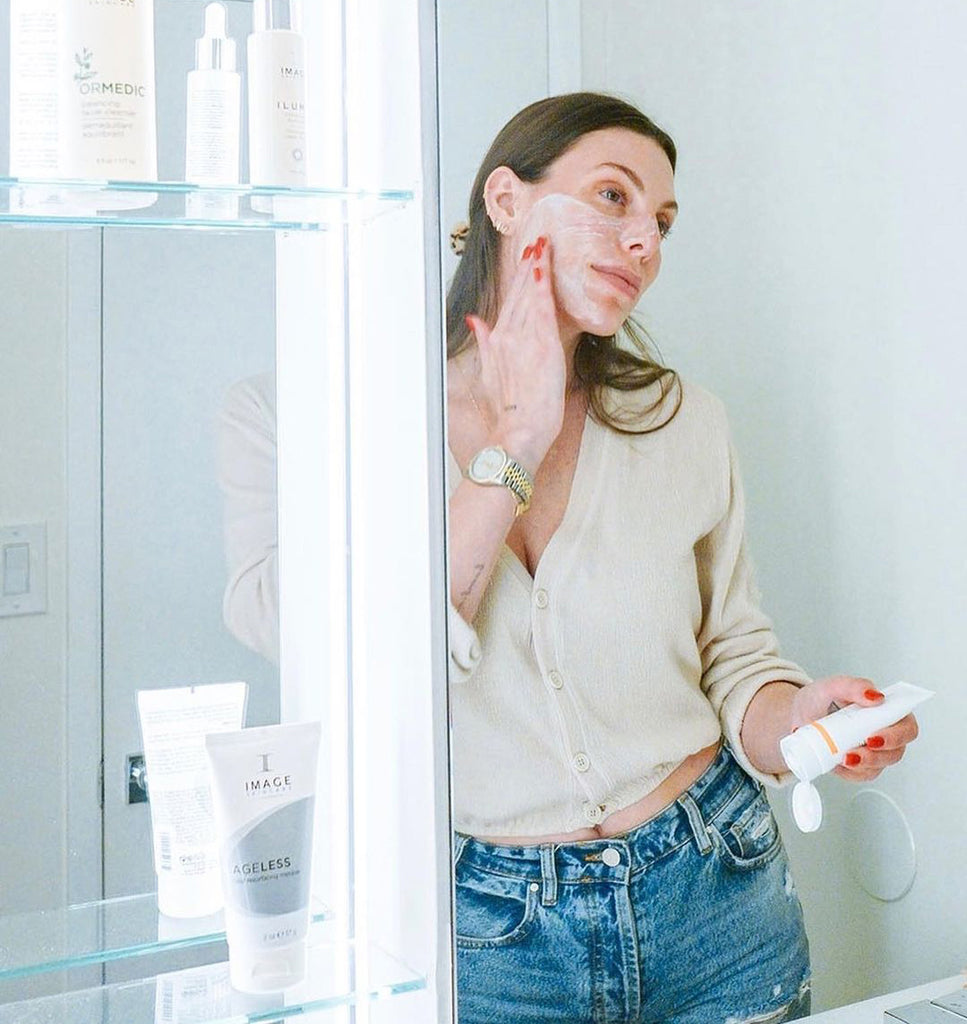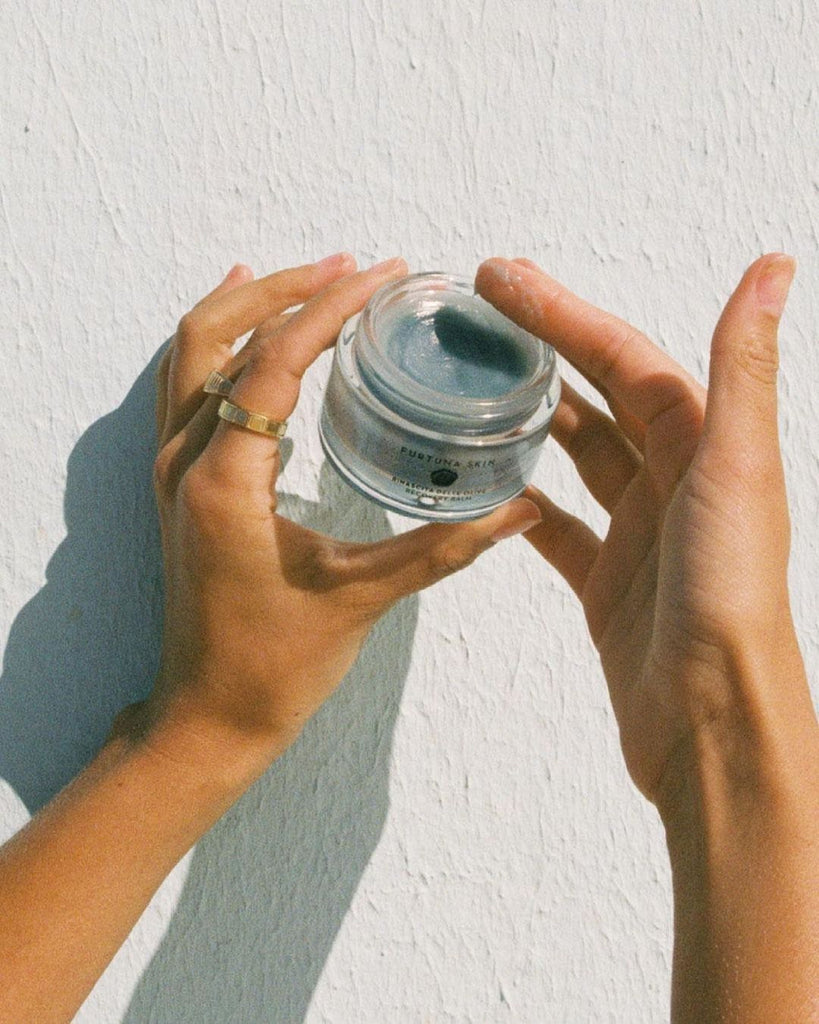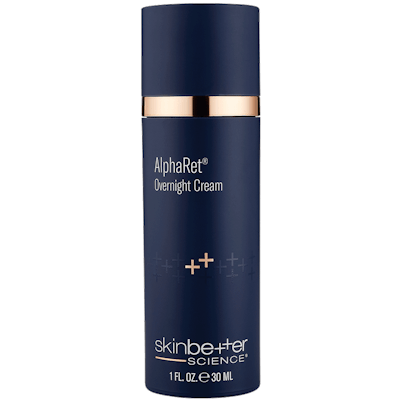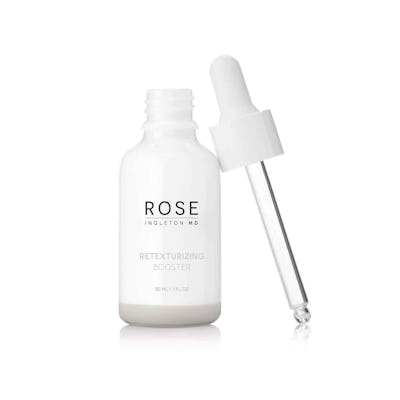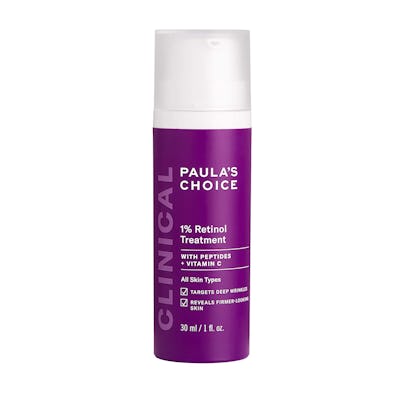Retinol is one of the best known, highest researched, and overall dermatologist-recommended ingredients in skin care — it’s essentially an A-list multi-hyphenate in the aesthetics arena. And seeing as it’s proven to help combat acne, wrinkles, and dark spots, all while improving skin texture and stimulating collagen production, retinol’s got a dedicated and massive fanbase for a reason.
But even as a beloved household name, one function of the ingredient remains up for debate: Is retinol an exfoliant? According to studies, the active increases cellular turnover, which would seemingly imply that it’s an exfoliant. But, technically speaking, the ingredient is actually classified as an antioxidant — just one that happens to behave very similarly to exfoliants. Confused? Keep reading to see what the experts have to say about how the skin-boosting ingredient really works.
Is Retinol An Exfoliant?
The anti-aging beauty MVP is a vitamin A derivative and an antioxidant, explains Dr. Azadeh Shirazi, M.D., a board-certified dermatologist at La Jolla Dermatology. “Many people think retinols sweep away dead skin cells because we see peeling and redness when using them, but they’re actually not true exfoliants,” she tells Bustle. That said, they do accomplish much of what a true exfoliant would. “[They] renew our skin cells, protect our collagen by fighting off free radicals, and stimulate new collagen and elastin, therefore plumping up our deeper skin — the dermis — to reduce fine lines, wrinkles, and pores,” she explains.
Dr. Adarsh Vijay Mudgil, M.D., a board-certified dermatologist based in New York City, dubs retinol a “pseudo-exfoliant” because of the way its effects mimic what an actual exfoliating ingredient does to your skin. “Retinols encourage your skin to turn over at a faster pace and to generate healthier skin cells,” he tells Bustle. “A proper exfoliant actually strips your skin of dead skin cells.” In other words: your retinol helps regulate the shedding of dead skin cells but they don’t actually “break down the glute between them,” says Dr. Mona Gohara, M.D., board-certified dermatologist. “It may have a similar result but it isn’t technically [an exfoliant],” she explains. “They use two different mechanisms of liberating skin cells.”
What Is An Exfoliant?
Exfoliants are products or treatments that remove dead skin cell buildup from the surface of the skin, encouraging the natural “shedding” process to move along more efficiently, celebrity facialist Candace Marino explains. And they're broken down into three categories: chemical, physical, and enzymatic.
Chemical exfoliants include alpha-hydroxy and beta-hydroxy acids, like the popular glycolic, lactic, and salicylic acids, Shirazi says. Enzyme exfoliants often come in the form of masks or peels, and physical exfoliants are anything that mechanically removes dead skin cells — think facial scrubs and dermaplaning.
Exfoliating is a key part of a healthy skin care routine because it gives your complexion's natural dead skin cell-sloughing process a boost, which decelerates over time. “Our skin cells become lazy with age and our cell turnover slows down,” Shirazi says. This allows dead cells to hang around longer, which ultimately accentuates lines and makes your skin appear duller. Therefore, properly exfoliating the skin ensures the dead layer of skin is removed, revealing a more radiant, renewed glow.
Should You Use Retinol?
Retinol has dozens of benefits that make it worthy of a spot in your skin care regimen — regardless of your skin type. If you’re using the ingredient for the first time, just be prepared to experience potential irritation (a process known as “retinization”). “[With retinol,] you’re speeding up cell turnover, so you can get really dry and it can be irritating,” Dr. Renée Moran, D.O., owner of Dr. Renée Moran Medical Aesthetics and founder of RM Skincare, says. For that reason, Moran suggests implementing it gradually if you’re just starting out and using the lowest strength only once or twice a week. “Do that for about a month, and if your skin is OK with that, increase to three times a week,” she says. But be sure to monitor your skin — retinol is strong, and this could be the most your skin needs.
There is room for both an exfoliant and a retinol in your routine, too. Dr. Marisa Garshick, M.D., a board-certified dermatologist, previously told Bustle to use the two active products at either different times of the day or on different days of the week to avoid skin irritation.
Shop Retinol-Infused Skin Care
For Sensitive Skin
Marino and Shirazi both recommend this overnight cream for its potent blend of peptides, retinoic acid — the strongest and most stable molecule in the vitamin A family — alongside lactic and glycolic acids. It also contains soothing allantoin and green tea extract to offset any potential irritation, making it a good choice for all skin types.

